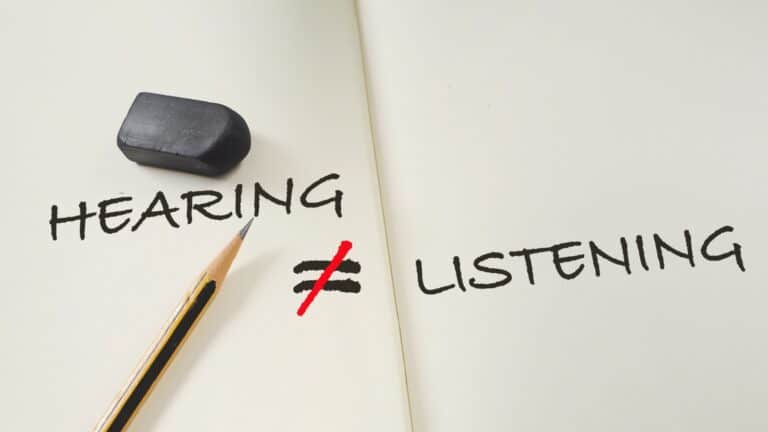12 red flags of financial abuse in relationships
Financial abuse doesn’t always look like someone snatching your wallet or stealing cash.
Often, it’s more subtle—your partner “manages” all the bills, questions your spending, or discourages you from working. At first glance, it may even seem like care or protection. But underneath, it chips away at independence and freedom.
According to the National Network to End Domestic Violence, financial abuse occurs in 99% of abusive relationships, making it one of the most common yet overlooked forms of control (NNEDV, 2024). The signs are not always obvious, which is why many people don’t recognize them until they’re deeply entangled.
In this article, we’ll break down twelve red flags of financial abuse. Each one comes with insight into how it shows up and gentle steps you can take if you notice it in your own life.
Refusal to Discuss Money or Hiding Money

When a partner avoids talking about bank accounts, debts, or income, it often signals secrecy rather than privacy. Open communication about money is vital in building trust, and stonewalling blocks that foundation.
A 2025 survey found that over half of adults admitted to ignoring financial red flags in their relationships, including partners refusing to discuss money. That silence can keep you in the dark about shared responsibilities or hidden risks.
If you find yourself excluded from financial conversations, gently insist on transparency. Couples don’t need identical spending habits, but both should have access to the same information.
Guilt-Tripping Around Your Spending
It’s one thing to talk about budgeting together. It’s another to be shamed for buying something as small as a new shirt or coffee with friends. When guilt becomes a tool to control how you use your money, that’s emotional manipulation.
Many women report feeling selfish or irresponsible after their partner criticizes their personal spending. Over time, this can lead to doubts about your judgment and a sense of feeling undeserving of financial independence.
A healthy partnership allows both individuals some autonomy in managing their own finances. If you feel constantly criticized, consider setting boundaries around personal spending decisions.
Restricting Access to Accounts
A common tactic of financial abuse is restricting access to shared accounts or keeping passwords secret. This keeps one partner dependent and prevents equal participation in decisions. Without access, you can’t see what’s being spent or saved, and that power imbalance grows.
If you’re denied access to shared resources, request joint visibility. Even if accounts are separate, you should have clarity about how shared bills are handled.
Pressure to Depend Financially
Sometimes, a partner might suggest you quit your job or discourage you from pursuing opportunities. While this may be disguised as care, it often serves to make you reliant on them.
Forbes highlights employment sabotage—where someone prevents their partner from working—as a strong marker of financial abuse. That loss of income makes leaving the relationship far harder later.
The way forward is to maintain financial independence whenever possible. Even if one person earns more, both should be able to support themselves if needed.
Loans or Purchases in Your Name Without Consent
Few things feel as violating as learning you’re responsible for a loan or purchase you never agreed to. This type of fraud can tie you into debt and damage your credit. Beyond betrayal, it can leave long-term financial scars.
If this resonates, one way forward is to monitor your credit report regularly. Free annual reports are available, and credit freezes can limit unauthorized activity. Catching issues early reduces long-term harm.
Forcing You to Cover All Expenses
Relationships should involve balance, even if contributions are not precisely equal. However, when one partner consistently refuses to contribute and expects the other to cover the bills, it fosters dependency and resentment.
This can show up subtly at first, like always “forgetting” a wallet. Over time, it becomes a pattern where you bear the weight of shared expenses.
In a healthy setup, both partners agree on how bills are split. If you notice one-sided contributions, initiate a clear conversation about fairness.
Monitoring or Controlling Spending
Another red flag is when a partner watches your every financial move, such as checking statements, inquiring about every transaction, or demanding access to your accounts. This level of control creates anxiety and strips away your privacy.
Recent findings highlight that many people overlook this as “concern,” when in fact it signals distrust and control. Constant monitoring shifts the balance of power in the relationship.
The healthier approach is mutual trust. If you feel your autonomy slipping, suggest financial transparency on both sides rather than surveillance of one.
Withholding Money for Essentials
When money is used as punishment—refusing to provide funds for groceries, healthcare, or daily needs—it crosses into severe abuse. They might withhold cash until you comply with demands. This strips away dignity and creates dependence.
The way forward is to quietly build your own safety net. Setting aside even small amounts of cash, gift cards, or resources in a secure location can help restore a sense of security and provide options if needed.
Exploiting or Stealing Your Money

Using your funds without permission, draining joint accounts, or pocketing money meant for household expenses are signs of exploitation. It’s not just poor communication—it’s theft.
Verywell Mind includes unauthorized use of funds and economic exploitation as common forms of financial abuse. The impact extends beyond lost money; it breaks trust.
Protecting yourself means keeping a close eye on accounts and setting clear boundaries.
Sabotaging Career or Education
Financial abuse doesn’t always look like money disappearing. Sometimes it’s about stopping you from earning it. A partner might discourage you from taking classes, mock your ambitions, or create chaos that affects your work.
These tactics limit your independence and growth, keeping you reliant on them for support. Over time, this can leave you feeling trapped with fewer options.
To counter this, hold onto your goals firmly. A loving partner supports your growth, not undermines it.
Secret Debts or Hidden Accounts
Discovering that your partner has hidden loans or entire bank accounts can feel like a betrayal. These secrets often come with financial risks that can lead to debt without your knowledge.
Studies show that many couples admit to hiding financial information from one another, often dismissing it as minor. But over time, secrecy can spiral into major financial harm.
The best response is to insist on transparency in shared commitments. Healthy relationships thrive on honesty, not financial surprises.
Fear of Questioning Finances
Perhaps the most subtle red flag is fear. If you feel anxious about bringing up money because it might cause anger, dismissal, or punishment, that’s a sign of control.
Fear shuts down communication, which is precisely how financial abuse thrives. When you avoid speaking up, the imbalance only grows stronger. Support from trusted friends, counselors, or helplines can provide strength to address it safely.
Wrapping Up
Financial abuse often hides in plain sight, dressed up as love, generosity, or practicality. The red flags aren’t always easy to spot, especially when emotions are involved. However, when money becomes a tool for control rather than collaboration, it’s time to take a step back.
Remember: a healthy relationship builds trust, transparency, and mutual respect. If these red flags sound familiar, you’re not alone—and resources exist to help you rebuild independence. Awareness is the first step, and each small act of reclaiming control adds up to a stronger, freer future.
The 15 Things Women Only Do With the Men They Love

The 15 Things Women Only Do With the Men They Love
Love is a complex, beautiful emotion that inspires profound behaviors. We express our love in various ways, some universal, while others are unique to each individual. Among these expressions, there are specific actions women often reserve for the men they deeply love.
This piece explores 15 unique gestures women make when they’re in love. From tiny, almost invisible actions to grand declarations, each tells a story of deep affection and unwavering commitment.







